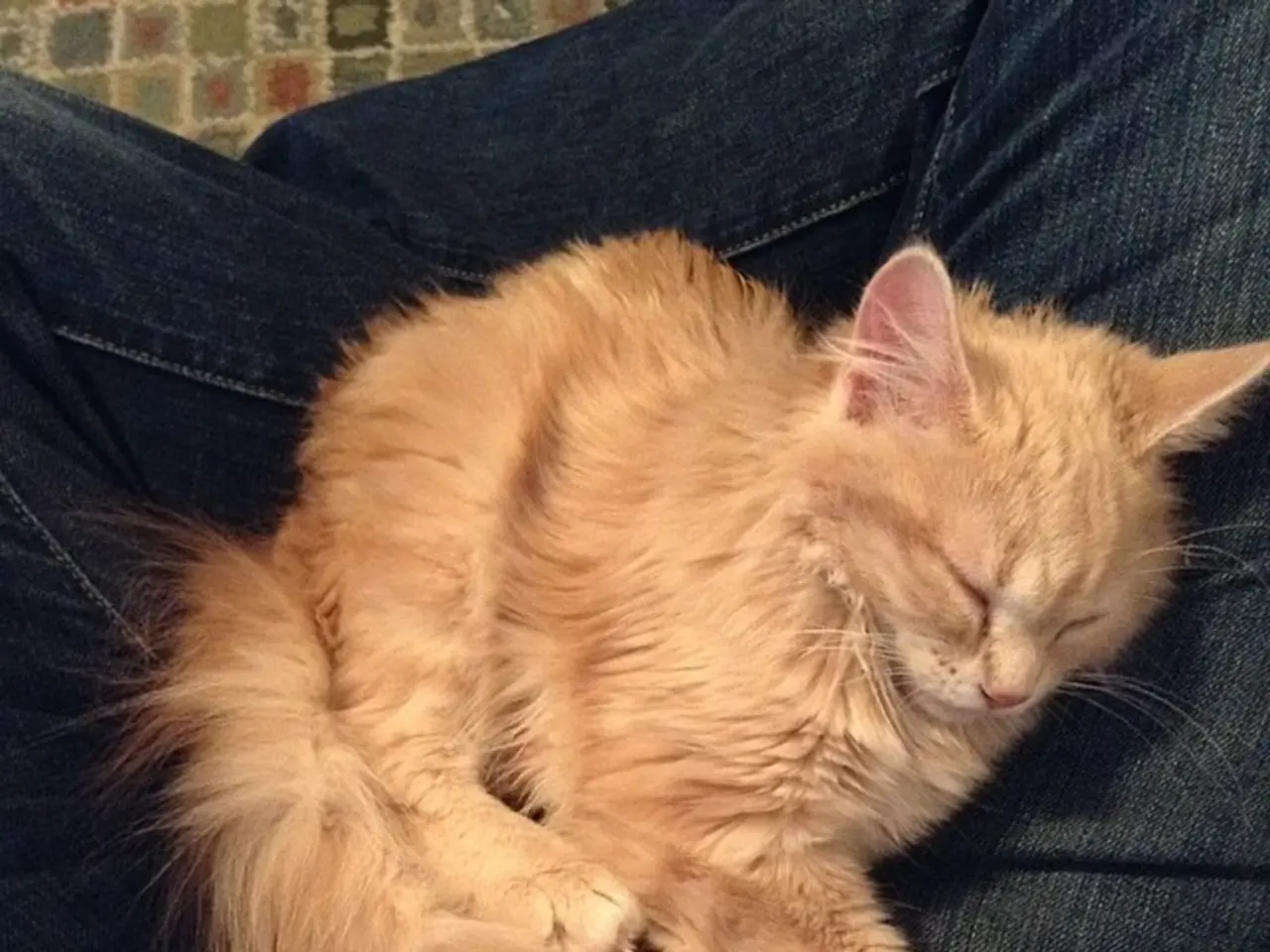Uncontrolled jerking during sleep, its causes, and available treatments explained
Pathologic myoclonus, a condition characterised by sudden, involuntary muscle jerks, can affect individuals of different ages and is often linked to underlying neurological or metabolic conditions.
In infants and children, pathologic myoclonus is most frequently caused by genetic metabolic disorders and progressive myoclonic epilepsies. Metabolic disorders, such as inborn errors of metabolism and mitochondrial diseases, can lead to muscle spasms. Progressive myoclonic epilepsies, including Unverricht-Lundborg disease, are significant causes, particularly in younger populations.
As individuals grow into adulthood, the causes of pathologic myoclonus expand to include genetic neurodegenerative diseases and mitochondrial disorders. Neurological diseases, such as epilepsy, and genetic mutations causing neurodegeneration, like those affecting progranulin and C9ORF72, are common culprits.
In older adults, neurodegenerative disorders related to abnormal protein aggregation, such as Parkinson’s disease and corticobasal syndrome with TDP-43 pathology, are common causes. These disorders often manifest in the form of movement disorders and myoclonus.
Sleep myoclonus, a type of pathologic myoclonus that occurs during sleep, can cause difficulty falling asleep or poor sleep quality. It is important to note that sleep myoclonus can be a sign of an underlying health condition, such as a sleep disorder or a neurological disorder. If a person experiences frequent myoclonic episodes that affect their ability to fall or stay asleep, they should contact a doctor.
Treatment for sleep myoclonus varies depending on the underlying cause. For instance, medications such as antiseizure and anticonvulsant medications, sedatives, 5-hydroxytryptophan, and botulinum toxin (Botox) can help manage the condition. Treating any underlying condition that contributes to myoclonus will help alleviate unwanted muscle spasms.
Several conditions can cause sleep myoclonus, depending on a person's age. For example, sleep disorders like pediatric periodic limb movement disorder, rhythmic movement disorder, epilepsy, restless leg syndrome, multiple sclerosis, and Huntington's disease are possible causes in different age groups.
It is crucial to remember that pathologic myoclonus can occur due to several different conditions or without a known cause. Conditions such as Alzheimer's disease, Creutzfeldt-Jakob disease (CJD), and restless leg syndrome can also lead to myoclonus, especially in older adults.
In conclusion, understanding the causes of pathologic myoclonus is essential for early diagnosis and effective treatment. If you or someone you know experiences frequent muscle jerks during sleep or at other times, it is recommended to consult a healthcare professional.
- In some cases, sleep myoclonus might be a sign of depression, a mental health concern that could potentially be managed through science-backed treatments and lifestyle adjustments in the realm of health-and-wellness.
- Interestingly, copd (Chronic Obstructive Pulmonary Disease) or diabetes, two common Medical conditions, have not often been linked to pathologic myoclonus, but their association is still worth exploring in predictive research studies.
- For individuals with diabetes, it's essential to maintain proper blood sugar levels to minimize the risk of various complications, like myoclonus, and promote overall health and wellness.
- Additionally, it's important to acknowledge that certain medications, like antidepressants, could potentially cause myoclonus as a side effect, which healthcare professionals should consider when prescribing treatment plans.
- Besides genetic and neurological disorders, sleep myoclonus could also be influenced by environmental factors and stress levels, underscoring the importance of mental health as a factor in maintaining a healthy sleep cycle and reducing the occurrence of myoclonus.




